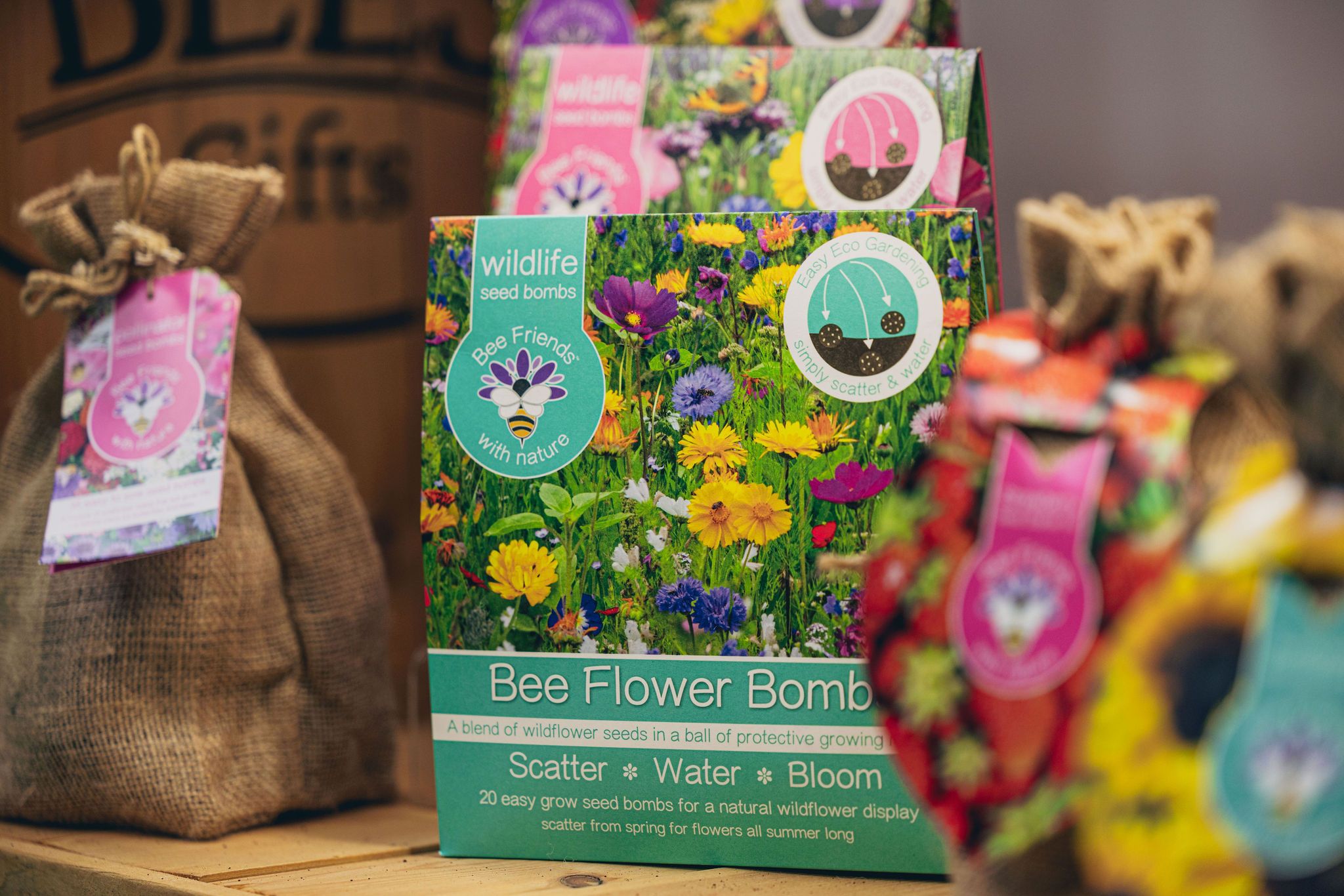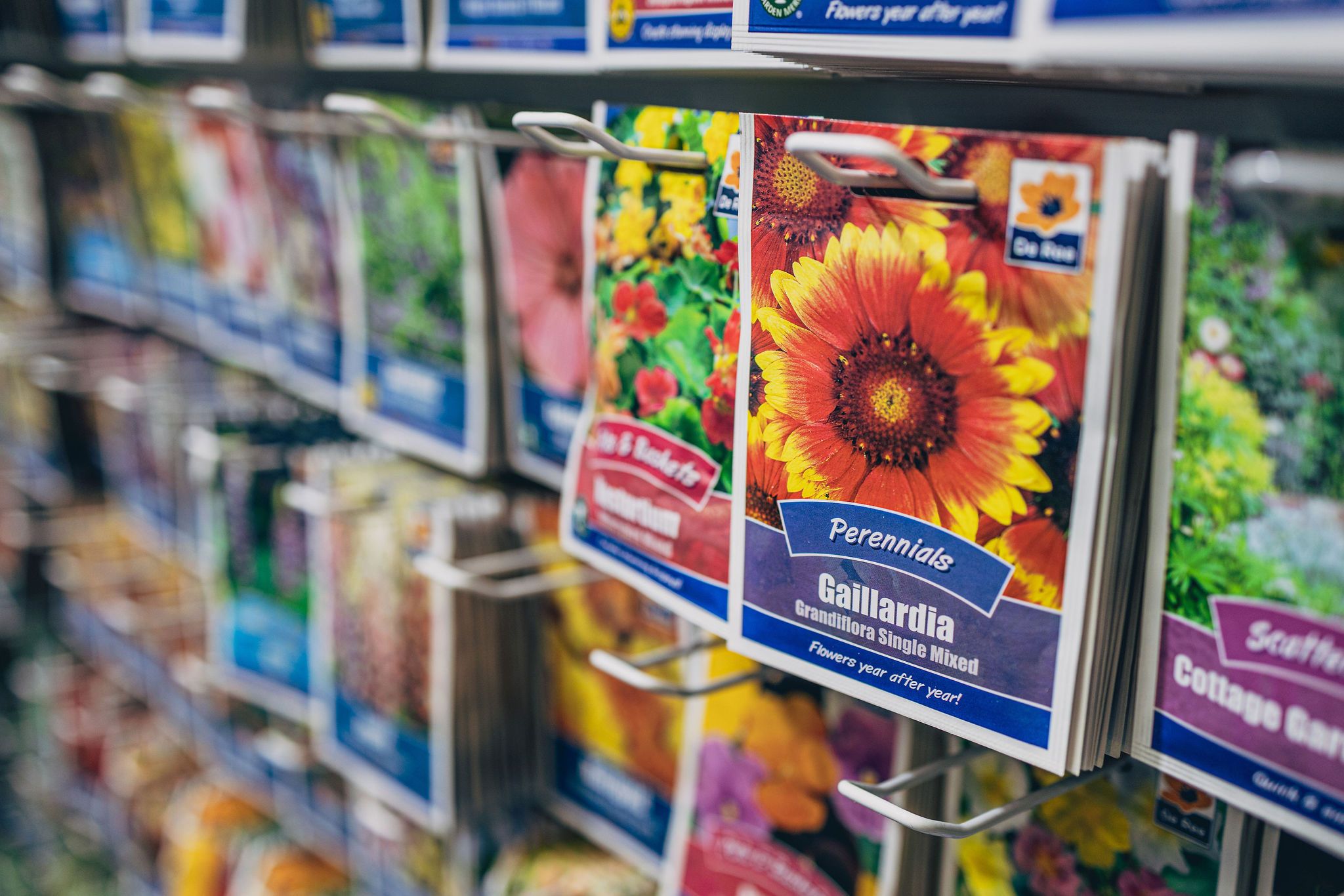Gardening in the UK: A Flourishing Industry - Stats, Trends and Tips for Retailers
)
Gardening is more than just a pastime in the UK; It's a long-standing cultural tradition that supports both the health of the environment and personal well-being. Recent retail trends and statistics illustrate the industry’s growth, with annual spending on gardening products, plants and flowers reaching £6.2 billion in 2020 and predicted to surpass £6.5 billion by 2025. This growth reflects not just the popularity of gardening but also its evolution in line with societal and environmental shifts.
For businesses in the gardening sector, these insights provide a goldmine of opportunities to adapt and grow. In this article, we’ll explore key trends shaping the industry and discuss practical strategies that businesses can use to cultivate success in this thriving market.
Gardening in the UK: A Snapshot
Did you know that 87% of UK households have access to a garden? This means gardening is accessible to a significant majority of the population, making it a universal activity. However, this access isn’t evenly distributed. In urban areas like London, one in five households lacks a private garden, pushing interest towards public parks and balcony gardening. For gardening businesses, this opens doors to innovative product lines catering to smaller, urban spaces.
Moreover, age plays a pivotal role in gardening preferences. It’s no surprise that those aged 55 and older are the most passionate gardeners, with 51.42% expressing their love for the activity. This group also spends the most—around £5.10 per week on gardening products. However, younger generations show less enthusiasm, however, in recent years there has been a surge in popularity amongst Gen Z and Millennials.
Growing Food and Cultivating Sustainability
One of the most exciting trends in gardening is the shift towards sustainability and self-sufficiency. According to statistics, 36% of people in the UK grow their own herbs, fruits or vegetables. Vegetable patches, found in 28% of UK gardens, are now a staple for many households. This isn’t just a pandemic-inspired hobby—it reflects a need for healthier lifestyles and reducing reliance on store-bought produce.
For gardening businesses, this trend is an opportunity to provide tailored products and advice. Starter kits for beginners, workshops on sustainable gardening and high-quality seeds or tools are just a few ways to tap into this demand. By positioning themselves as enablers of sustainable living, businesses can draw in eco-conscious consumers.

The Rise of Wildlife-Friendly Gardens
The UK public is increasingly turning their gardens into sanctuaries for wildlife. A remarkable 87% of gardeners express a desire to attract more wildlife, with many going the extra mile by planting pollinator-friendly flowers or setting up bird feeders and insect hotels.
This wildlife-friendly approach aligns beautifully with the eco-conscious ethos that is taking root across UK. For garden centres, and businesses of the like, this is a golden opportunity to market wildlife-supporting products such as native plants, eco-friendly birdhouses and educational resources about creating biodiversity-rich gardens. By catering to this trend, companies not only align with consumer values but also contribute to vital environmental causes.
Workshops and events provide an engaging way to connect with customers while promoting wildlife-friendly practices. For example, hands-on sessions on building DIY birdhouses or insect hotels can appeal to families and hobbyists. In addition, eco-friendly garden accessories such as bird feeders, nesting boxes and water features are excellent options to encourage biodiversity.
Declining Lawns and Growing Features
Traditional lawns, once a hallmark of British gardens, are steadily being replaced. About 22% of gardeners report reducing their lawn sizes or removing them altogether in favour of flower beds, paving or decorative features. This shift reflects changing priorities, with gardeners seeking low-maintenance spaces that are aesthetically pleasing and functional.
The gardening industry can capitalise on this trend by offering alternatives such as gravel and hardscaping solutions. Additionally, decorative planters, pergolas and water features are growing in popularity as homeowners reimagine their gardens as multifunctional spaces.
The Impact of Price and Education
While sustainability is a hot topic, cost remains a driving factor in consumer choices. For instance, 61% of consumers base their compost purchase decisions on price rather than content. Surprisingly, 67% of consumers don’t fully understand what’s in their compost.
This gap presents a significant opportunity for businesses. Educating customers about the benefits of peat-free and sustainable products can encourage informed purchases. Offering competitive pricing for eco-friendly alternatives or implementing loyalty programs can further incentivise greener choices.
Garden retailers should also consider storytelling as a way to connect with customers. Sharing the journey of sustainable products, from sourcing to environmental impact, can inspire trust and loyalty while fostering greater appreciation for eco-conscious gardening.

Seasonal Trends and Strategic Timing
When do most people start gardening projects? The answer is March and April, the months when spring breathes new life into gardens across the UK. Many enthusiasts begin planning their projects months in advance, often during the colder winter months.
For businesses, this presents an opportunity to align marketing campaigns with these seasonal peaks. Early-bird promotions, bundled offers and planting guides released in January or February can help customers prepare while driving early sales. Seasonal interactive events or content marketing, such as “Gardening Tips for a Blooming Spring,” can further engage audiences and establish businesses as trusted advisors.
Practical Tips for Gardening Businesses
It’s clear to see that the gardening industry is constantly evolving. Here’s how businesses can grow alongside it:
1. Prioritise the Mature Market
Older generations are the industry’s backbone. By offering premium, ergonomic tools, low-maintenance plants and workshops tailored to this demographic, retailers can cater to their needs while fostering loyalty.
2. Engage Younger Audiences
The future of the gardening industry lies in capturing the interest of younger generations. Urban gardening kits, social media tutorials and gamified gardening apps can make gardening more appealing to millennials and Gen Z.
3. Go Big on Sustainability
Eco-conscious consumers are driving demand for organic fertilisers, peat-free compost and pollinator-friendly plants. By promoting these products and providing educational resources, gardening businesses can become leaders in the green movement.
4. Embrace E-Commerce and Digital Innovation
As online shopping continues to grow, businesses must establish a strong digital presence. Virtual garden planning tools, subscription boxes for seeds and supplies and interactive online workshops can set companies apart in an increasingly digital marketplace.
5. Offer Wildlife-Centric Solutions
With a majority of gardeners keen to attract wildlife, businesses should focus on products that encourage biodiversity. Native plants, bird feeders and eco-friendly pest control solutions are just some of the offerings that can resonate with customers.
A Blooming Future
The UK gardening industry is thriving, with spending on gardening products and the popularity of the activity continuing to grow. However, success in this field requires more than simply riding the wave of current trends—it demands innovation, adaptability and a deep understanding of consumer needs.
From wildlife-friendly gardens to sustainable living, the future is teeming with opportunities for businesses to make an impact. By catering to diverse demographics, embracing eco-friendly practices and leveraging the power of digital tools, gardening businesses can ensure they not only survive but thrive in this ever-growing market.
As we look to the future, one thing is clear: gardening isn’t just about plants and flowers; it’s about connection—connection to nature, community and a sustainable way of life. Businesses that nurture this connection will undoubtedly flourish.
We’re inviting guest contributors to write for Glee!
Share your insights, expertise and creative ideas with a like-minded audience. If you are interested in contributing, please submit your ideas or draft articles to us here. Together, we can inspire and support gardeners at every stage of their journey.
We look forward to hearing from you!
